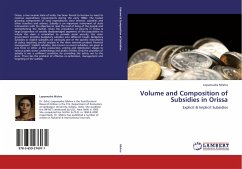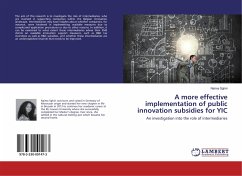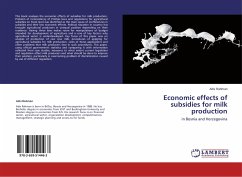
Cross-Sector Subsidies in Electricity Pricing in Maharashtra, India
A case for reforms
Versandkostenfrei!
Versandfertig in 6-10 Tagen
27,99 €
inkl. MwSt.

PAYBACK Punkte
14 °P sammeln!
Subsidies in electricity tariffs in India are currently designed in a way such that industrial and commercial sectors pay higher rates to finance subsidies given to the residential and agricultural sectors. These cross sector subsidies have led to wastage, contributing to severe shortages in the electricity sector. This study provides a critique for the existing pricing policy and suggests suitable alternatives to ensure efficient allocation as well as equitable distribution of the country's energy resources. Results obtained from sector-wise estimation of elasticity of demand for electricity ...
Subsidies in electricity tariffs in India are currently designed in a way such that industrial and commercial sectors pay higher rates to finance subsidies given to the residential and agricultural sectors. These cross sector subsidies have led to wastage, contributing to severe shortages in the electricity sector. This study provides a critique for the existing pricing policy and suggests suitable alternatives to ensure efficient allocation as well as equitable distribution of the country's energy resources. Results obtained from sector-wise estimation of elasticity of demand for electricity suggest that subsidies should be implemented within a sector rather than across sectors. The findings of this study have several relevant implications which bear in mind the economic as well as political considerations that are required while framing policies for pricing of key commodities such as electricity.












